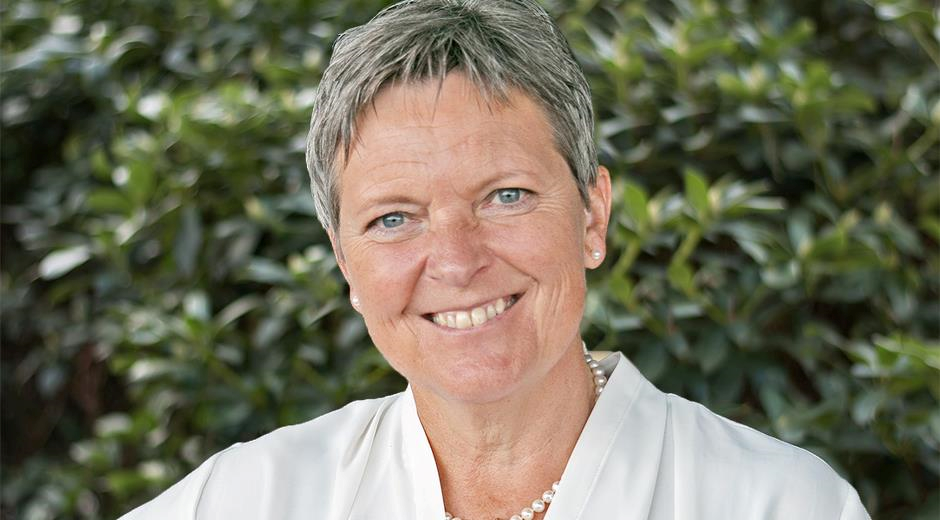The Novo Nordisk Foundation has awarded a grant of DKK 25 million to Bente Lomholt Langdahl, Professor at Aarhus University Hospital and Aarhus University, for a collaboration with colleagues throughout Denmark to investigate how to optimally treat people with osteoporosis.
In Denmark, 650,000 people have osteoporosis, but only 172,000 are aware of this, and of these, only 90,000 are receiving treatment. The grant will enable treatment to be improved.
“We have major challenges in getting people with a high risk of bone fractures into treatment and in finding the optimal treatment to counteract these fractures among individuals in the short and medium term. We will therefore carry out four major studies in the research project, and the results will improve the treatment in this field. The goal is to provide far more individualised treatment for people with osteoporosis that not only works in the short term but will also prevent bone fractures for 10 years or more. The research results will also strongly influence the treatment of people with osteoporosis internationally,” explains Bente Lomholt Langdahl.
The Optimised Long-term Management of Osteoporosis (OPTIMISE) research project is being led by a group of researchers from Aarhus University Hospital, Odense University Hospital, Amager and Hvidovre Hospital, Aalborg University Hospital, Zealand University Hospital Holbæk and Zealand University Hospital Køge in collaboration with other hospitals interested in research on osteoporosis.
Three clinical studies will change the guidelines
In the 5-year research project, the hospital researchers will conduct three clinical studies and establish a registry in Denmark for the incidence of osteoporosis and the treatment of the people who have it.
- One clinical study aims to investigate how to optimally use Evenity® (romosozumab), a new and very effective drug for severe osteoporosis. People with osteoporosis are usually treated with Evenity® for 12 months and then switched to another treatment, but the researchers will investigate whether a better method might be taking Evenity® for six months, another treatment for 12 months and then Evenity® again.
- In the second clinical study, the researchers will examine the effects of the common practice of pausing treatment with alendronate after 3–5 years. The researchers will investigate the risk of bone fractures among people stopping versus continuing treatment. The researchers will also examine the risk of rare side-effects among people who continue treatment and the cost of monitoring the people who stop treatment.
- In the third clinical study, the researchers will investigate whether bone loss and thus relapse can be avoided among people who stop treatment with the Prolia® antibody (denosumab). The researchers will let people stop treatment with Prolia® by using transitional treatment with zoledronate and investigate how to optimally use zoledronate for this purpose both acutely and in the medium term.
“We know how to treat people with osteoporosis in the short term, but these studies will advance knowledge on what is optimal in the long term. Many people drop out of treatment because they do not really know where their treatment is heading. We hope to change this by having data to support treatment choices both in relation to start-up and in the longer term,” says Bente Lomholt Langdahl.
Establishing an osteoporosis database in Denmark
In the last part of the project, the researchers will establish a database with information on osteoporosis in Denmark. Today, data from dual-energy X-ray absorptiometry, which doctors use to assess the severity of osteoporosis, are not collected directly in registries but are stored in databases at the hospitals that perform the examinations.
In the fourth study, OPTIMISE, these data will be collected and combined with data from existing registries that include other diseases, treatments and bone fractures.
“These are real-world data that can complement the results of the clinical trials, so that we can assess how patients are doing when they are not included in studies that closely monitor them and their bone health. Overall, the research project has the potential to identify how to treat people with osteoporosis more individually in both the short and long term,” explains Bente Lomholt Langdahl.
Strengthening nationwide collaboration
Bente Lomholt Langdahl is receiving a Non-Diabetic Endocrinology National Thematic Collaborative Grant of DKK 25 million.
The grant, which the Foundation awards annually, gives researchers in endocrinology the opportunity to establish large research projects with partners throughout Denmark.
The purpose of the Non-Diabetic Endocrinology National Thematic Collaborative Grant is to strengthen clinical research collaboration within non-diabetic endocrinology and Denmark’s strong international position in preventing and treating non-diabetic endocrine diseases.
Two additional grants
In addition to the grant to Bente Lomholt Langdahl, the Foundation has also awarded two additional grants within non-diabetic endocrinology.
Rikke Beck Jensen, Senior Hospital Physician, Rigshospitalet, Copenhagen, is receiving a grant of DKK 9.9 million for The Danish Puberty Study – a National Cohort Study: Incidence, Aetiologies and Novel Treatment Strategies for Precocious Puberty.
Line Tang Møllehave, Postdoctoral Fellow, Bispebjerg and Frederiksberg Hospital, is receiving a grant of DKK 4.7 million for the project Effects of the Danish Iodine Fortification Programme: Consequences for Thyroid Health in Children and Adults.
Further information
Christian Mostrup, Senior Programme Lead, Communications, +45 3067 4805, [email protected]








